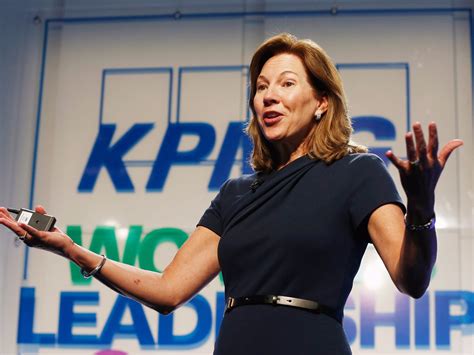A Quote by Lynne Doughtie
If you truly want to innovate, there will be some failures, and this can be difficult for some organizations - especially public companies managing quarterly earnings.
Related Quotes
Being captive to quarterly earnings isn't consistent with long-term value creation. This pressure and the short term focus of equity markets make it difficult for a public company to invest for long-term success, and tend to force company leaders to sacrifice long-term results to protect current earnings.
Unfortunately, to succeed in business, organizations need to make difficult choices all the time-what to do and, more important, what not to do. The truth of the matter is that whenever we make a difficult choice, some people will win and some will lose. The winners will be happy and the losers unhappy. It's impossible to make everybody happy all the time. If everybody in your organization is happy, that may be because you're failing to lead them.
After careful consideration, we have decided that for our next fiscal year, we'll issue guidance on comparable store used unit sales and on earnings per share only for the full fiscal year. We will no longer issue quarterly guidance. This decision reflects our continuing focus on longer-term store, sales, and earnings growth and on return on invested capital, and our recognition that the performance in shorter-term periods can be more volatile than over the longer term. As we report our quarterly results, we plan to comment on how our performance is tracking against our annual guidance.
Some people think elections are a game: who's up or who's down. It's about our country. It's about our kids' future. It's about all of us together. Some of us put ourselves out there and do this against some difficult odds. We do it, each one of us, against difficult odds. We do it because we care about our country. Some of us are right, and some of us are not. Some of us are ready, and some of us are not. Some of us know what we will do on day one, and some of us haven't thought that through.
People have accused me of only working with good companies. No I don't. I work with some very dysfunctional companies or unbelievably dysfunctional organizations. The people that bring me in know what they're doing won't work for the future. They know they want to change and they want to change for the right reasons. They believe what I believe and that's why they called me.



































